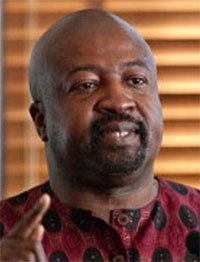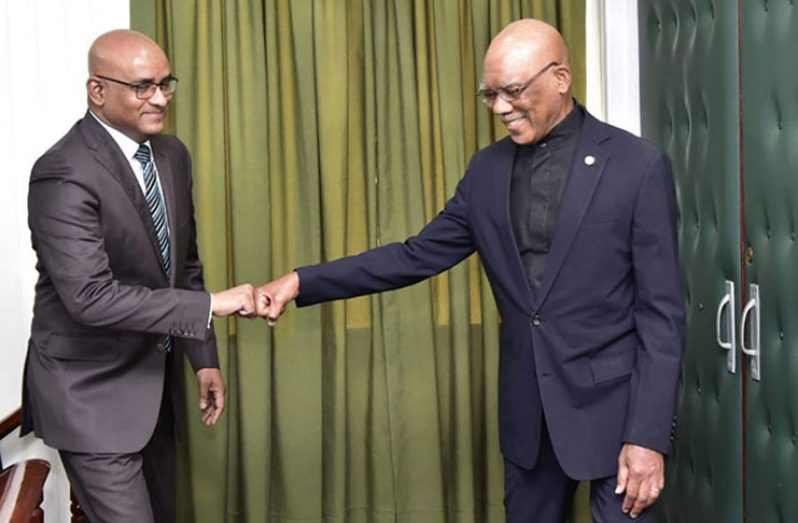…David Hinds says dialogue between President, opposition leader must continue
DESCRIBING the Court of Appeal’s decision on the no-confidence motion as “fair,” Political Scientist, Dr. David Hinds said the ruling has averted a political collision and has helped reset an atmosphere for political dialogue between President David Granger and Opposition Leader Bharrat Jagdeo.

Last Friday, by a 2:1 margin, the Court of Appeal ruled that the no-confidence motion against the government was invalid on the grounds that the opposition – the People’s Progressive Party/Civic (PPP/C), did not secure an absolute majority in the 65-Member National Assembly last December.
With the help of then Government Member of Parliament Charrandass Persaud, the opposition had secured a majority of 33 votes, however, the Appellate Court, in overturning the decision of the High Court, said a no-confidence motion attracts a higher requirement, and as such, 34 votes or more were needed to dethrone the government. The Speaker of the House, Dr. Barton Scotland has accepted the ruling.
JUDICIAL REASONING
In an interview with the Guyana Chronicle, Dr. Hinds said while many persons are caught up with the mathematics, the focus ought to be placed on the judicial reasoning that resulted in the 34 votes. “It came down to a matter of what the constitution implied rather that what it said explicitly.
I think the judicial reasoning behind the decision was persuasive. Many persons are hung up on the mathematics of the ruling rather than focusing on the judicial reasoning. For me, the latter is more important. The math is the outcome of a judicial interpretation of a clause in the constitution that left room for interpretation,” Dr. Hinds said.
According to Article 106 (6) of the Constitution, a government is defeated by a majority of all elected members of the National Assembly. According to the Chancellor of the Judiciary, Yonette Cummings-Edwards and Justice of Appeal Dawn Gregory, 33 constitute a simple majority while 34 or more votes constitute an absolute majority.
The ruling has political significance, Dr. Hinds said, while explaining that it puts a break on a situation that was getting out of control. Hours before the ruling on Friday March 22, the opposition leader, while protesting the Ministry of the Presidency, called on PPP/C supporters to “disrespect” and “chase” the President and his ministers, even after the government had condemned his earlier calls.
“The two sides were talking past each other rather than to each other. In the meantime there was a gathering political storm that could have led to political collision on the streets between the two sides and with the police having to intervene.”
“The ruling removed the argument that the government is illegitimate and in the process removed the PPP’s major reason for political anger and aggressive resistance. So the unintended consequence of the ruling was its political effect,” the political scientist explained.
He said the government and the opposition along with other stakeholders including the Carter Center should continue search for a political solution. The entire episode from the no-confidence vote to the court cases is consequence of our hardened partisan praxis. The opposition is always looking to topple the government and the government is always looking to beat back the opposition. And in our ethnic environment, that situation takes on added significance. We have not yet found a way to ease this inherent tension,” Dr. Hinds reasoned.
With Guyana preparing for the production of oil and gas in 2020, he said it is important to maintain a healthy political climate to safeguard the country’s resources. “With oil wealth on the horizon, the stakes are higher. But it is for precisely that same reason that we cannot allow instability to remain the rule because while we are fighting for the bone, external forces would carry away the meat.
So the President and the opposition leader need to continue talking even if it’s symbolic,” the political scientist further reasoned.
The opposition has pledged to challenge the decision of the Appellate Court at the Caribbean Court of Justice (CCJ). In the interim, the opposition said it will not attend the sittings of the National Assembly until a final determination by the CCJ.
This comes as no surprise, Dr. Hinds posited, noting that he had expected the PPP/C to hold onto some form of protest. “This is politics. I would have hoped that they didn’t go down that road but, the government just won a big victory, so the PPP has to do something to show some fight. I have no problems with that, protest is part of democracy,” Dr. Hinds said.
WILL NOT AFFECT BUSINESS
He noted however that the opposition’s absence from the National Assembly would not affect the business of the House, since it is the Government that holds a majority which is needed for the passage of ordinary bills and motions. The defector, Charrandass Persaud, was recalled. “I do hope that the government does no over-reach, for this would play into the hands of the PPP,” he posited.












